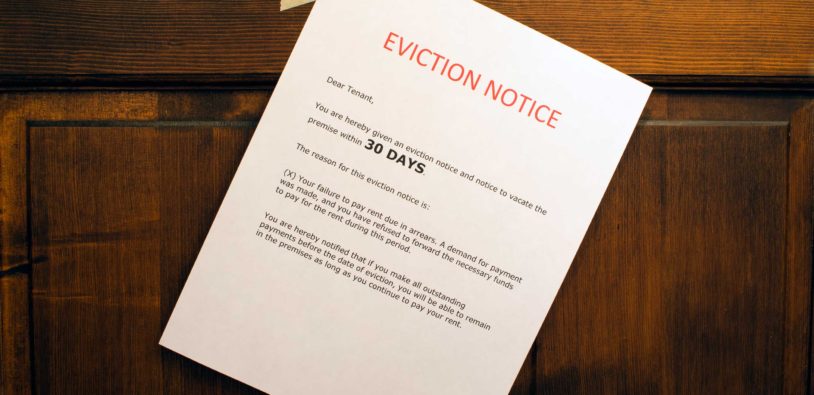Whether you’re a landlord or a tenant, the process of evicting another person from your home is always going to be challenging. Even if you have your reasons and legal standing to do so, it’s still never easy to suddenly kick someone out of their home. The process of ending a tenancy can be intimidating for tenants and landlords alike. However, successful evictions don’t have to be scary—or even sad!—if you have the right knowledge. In this article, the landlord-tenant attorneys from Balsamo & Rosenblatt will tell you exactly what you need to know about the eviction process in residential real estate – from how it works, how much it costs, and when it can be pursued as a legal measure.

What is Eviction?
Eviction is the process by which a landlord forces a tenant to leave their home. It’s a method of last resort, and it should be used as a last resort as well. When it comes to evicting a tenant, it can be a serious matter that requires careful planning and execution. If a tenant is evicted improperly, it can lead to serious problems for both the landlord and the tenant. The process of eviction can be initiated for a variety of reasons, including failure to pay rent and violating the terms of the lease. If a tenant is evicted for one of these reasons, they may file a retaliatory eviction lawsuit against their former landlord to try to get their rental property back.
Costs of Evicting a Tenant in Real Estate
The state has a statutory procedure of eviction. This procedure varies from state to state. It also varies from one court to another court. To evict a tenant, you will have to follow the procedure of law in your state. If you are not familiar with the state law regarding eviction, you may end up in a lot of legal hassles. In majority of the states, the landlord has to pay the legal cost of eviction. The costs include filing fees in addition to court costs. You have to bear in mind that eviction is a serious matter and it involves a lot of cost, advice from the boutique Real Estate law firm Balsamo & Rosenblatt.
When can an eviction be pursued as a legal measure?
As a residential landlord, you may evict a tenant if the tenant fails to pay rent, violates the terms of the lease or if the property is damaged beyond repair. Generally, you may only serve a Notice to Quit the day after the tenancy ends. However, in most circumstances, you cannot wait until the end of the tenancy and then proceed with eviction. You have to have a good reason, and have grounds for doing so. Of course, it’s best to avoid eviction as much as possible. Even if you have a good reason to evict a tenant, it’s far better to try to work things out first, rather than having a judge evict you.
How Eviction Lawsuits Work
It is not possible for a landlord to simply change the locks of the premises and remove your belongings. The eviction process is formal, culminating in the removal of you by a sheriff or marshal if they win. Often, tenants who are evicted illegally can receive compensation or even remain on the property.
There are states where eviction lawsuits are heard in a formal trial court, others where they are heard in small claims courts, and still others where they can be heard in either venue. Depending on how much rent you owe, add from Balsamo & Rosenblatt, your landlord may choose which venue to use, which can take the case out of the small claims court’s jurisdiction. A landlord who owns a large property may also hire an attorney to pursue a tenant, especially if the tenant has funds to pay.
Besides monetary limits, small claims courts have different evidence rules from regular courts. Small claims courts are much more liberal, allowing hearsay and evidence without a formal foundation to be introduced. There is, however, the option of engaging in “discovery,” a method of finding out more about the landlord’s position before trial. Pre-trial motions in regular court also make it easier to dismiss or limit a case.
Complaint and Response
An eviction proceeding is initiated by a landlord through a complaint. A notice of eviction outlines the reasons for your eviction, as well as the remedies that the landlord is seeking from the court, including moving out, returning rent, and compensating for damage. Other issues, such as property damage, usually require separate proceedings. You must receive a complaint and summons from your landlord, which informs you that you have been sued and must appear in court. The process of serving papers is known as service of process.
Summing up
The eviction process is rarely an easy one, and it can often be dangerous for landlords as well. If you hope to successfully evict a tenant, you’ll need to know your state’s eviction laws, have the right paperwork and know when to present it in court. There are many ways to evict a tenant in residential real estate, and you can usually legally evict a tenant if they don’t pay the rent. However, it’s important to remember that evictions are serious matters, and they can often lead to serious legal issues if they’re done wrong.